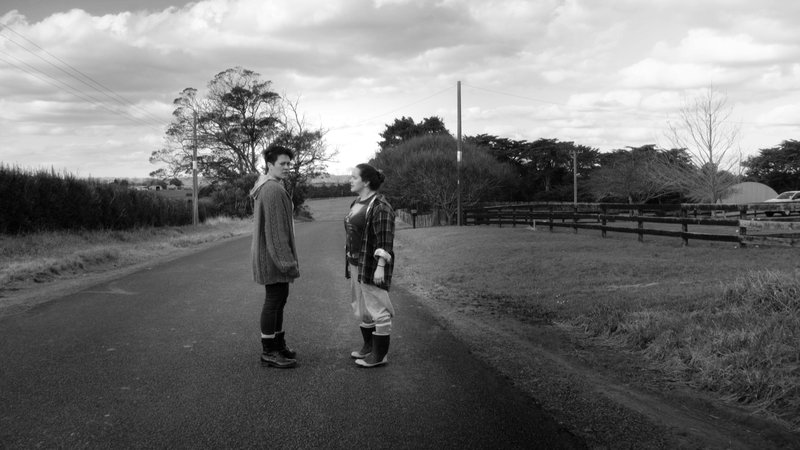The common elements help the production establish and keep cohesion. Drue Sturge serves as cinematographer using blown out grainy natural elements in most of the vignettes except for the sterility of the television studio scene another reason why that passage sticks out from the rest. The action all takes place at 10 AM in all sections plus the commitment to a one shot take that is also common amongst the films.
Two of the stronger segments point a finger at the failure of male authority figure in the community. In one directed by Paula Jones a young woman backed by her mates takes up makeshift arms against her male abuser. In the other helmed by Awanui Simich-Pene two sisters Titty and Bash head to a male dominated drinking hole to take back what's hers. Both of these sessions end at the moment things are about to escalate. The gaze back by Bash (Miriama McDowell) to the camera as she is about to enter the breach is the harrowing moment of the film.
The potential standout portion centres on the funeral (tangi) for the young boy. Both grandmothers adorned in green spar for the fate of the body. Renae Maihi's camera weaves between the two like a third character as the matriarchs try to settle the dispute. When the body is finally carried out to a waiting vehicle. The sobbing mom appears from the first scene to play a part in the fate of her child.
Waru is a powerful story told by voices that are not often heard in greater society. The content is somber as base feelings including grief, remorse, anger and guilt are explored throughout alongside the underlying question of how can this pattern be stopped from happening again? The well-trained lenses sharply deliver their snippets that despite needing a bit of tuning in a couple of instances make it a story I can definitely recommend.
*** 1/2 Out of 4.
Waru | Renae Maihi / Awanui Simich-Pene/ plus 6 others | New Zealand | 88 Minutes.
Tags: Maori, Abuse, Waru, Tangi, Funeral, Dragons, Gas, TV Station, Female Directors, One Take, Spare Key.

No comments:
Post a Comment